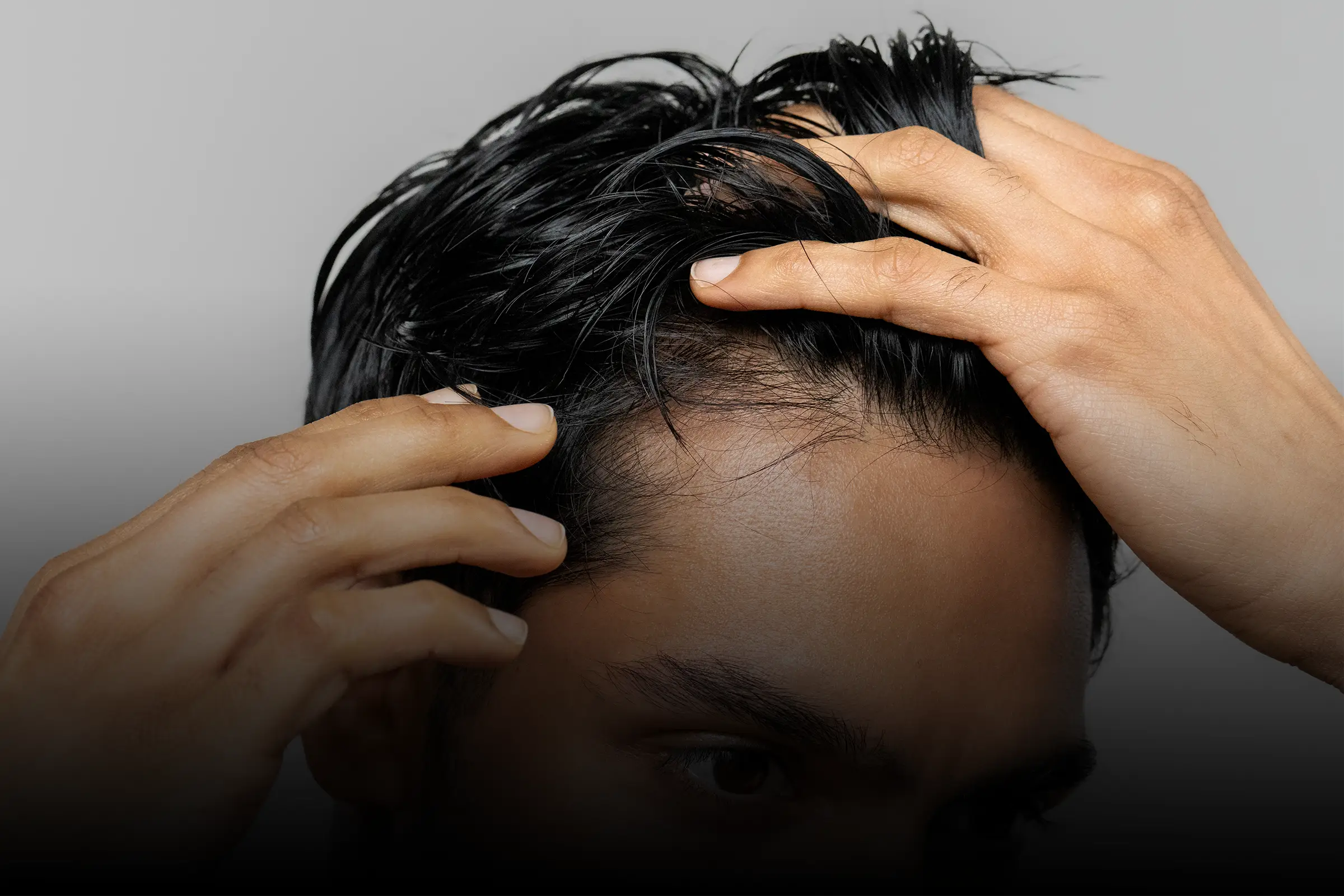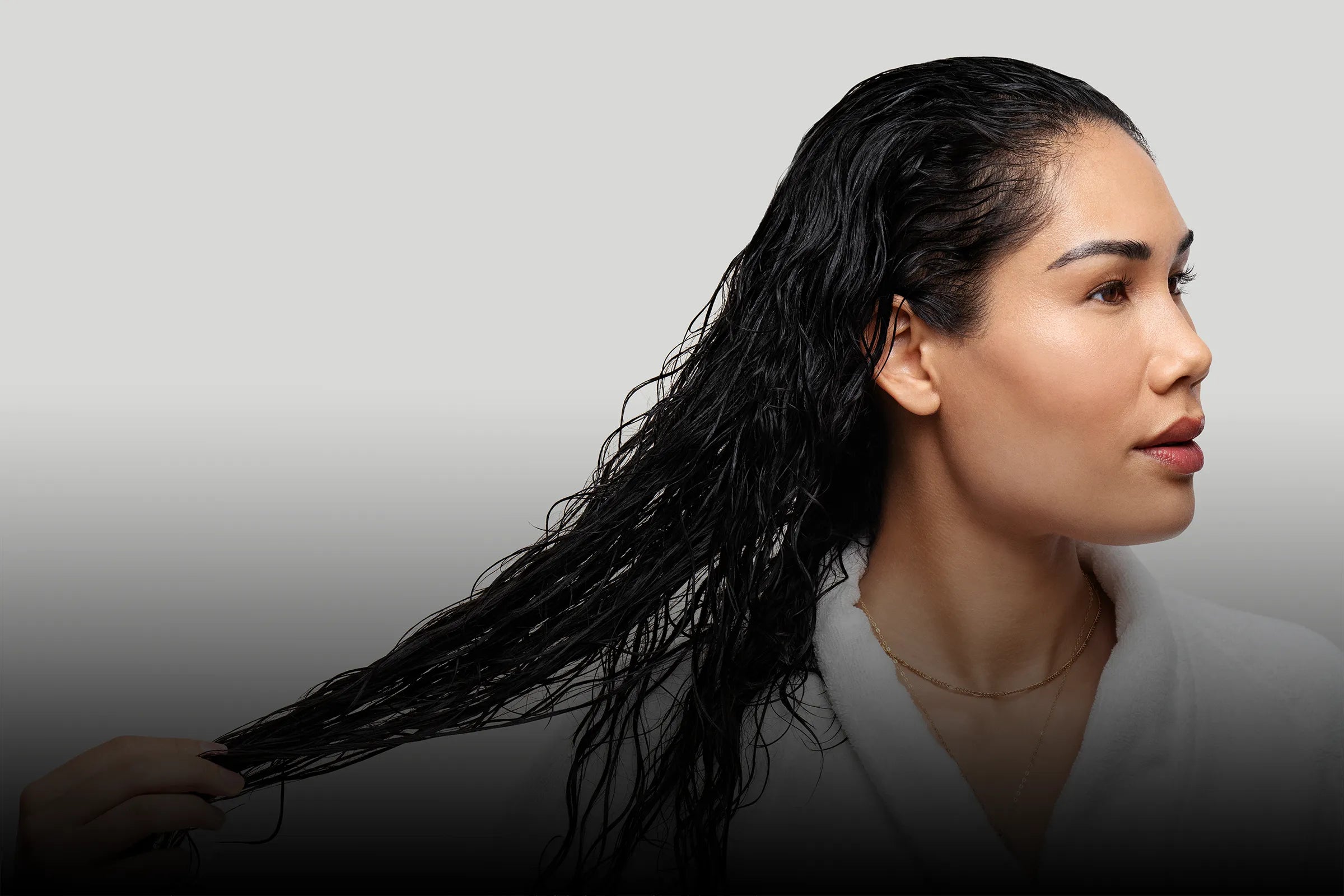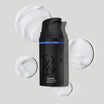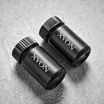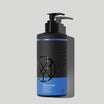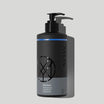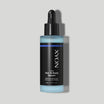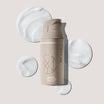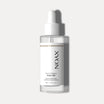Thinning hair is a common concern, regardless of age or sex. And we're spoiled for choice when it comes to products and treatments designed to help boost hair thickness. With that said, should you be using a hair thickening shampoo? Are there more permanent ways to boost hair thickness? We’ll address all these questions and more with the help of Dr. Christina Han, a board-certified dermatologist based out of Vancouver, Canada and XYON’s Medical Director.
What causes thick hair?
By the time your hair becomes visible, its thickness is basically set. The thickness of hair fibers is influenced by genetics and research has shown that it starts with the size of the hair follicle itself. Larger follicles produce thicker hairs.
Also, population-wide studies have been conducted to determine which genes (specific sections of DNA) are responsible for differences in hair thickness. What the data shows is that people from Asian backgrounds have a version of a gene called EDAR that results in a thicker cuticle layer (the outermost protective layer of the hair shaft). This is one of the potentially hundreds or thousands of genetic variations responsible for hair thickness (and texture).
In addition to genetics, hair thickness can also be impacted by medications, medical conditions (e.g., pattern hair loss, thyroid dysfunction), chemical treatments and aging.
What causes thinning hair?
Hair can thin for any number of reasons. Sometimes thinning is the result of a medical condition, or medication use that causes changes to the hair growth cycle or makes hair more fragile and prone to breakage. Dr. Han explains that when her patients ask how to thicken their hair, she takes the following approach:
“It's important when patients come to see me about thinning hair that we first work to identify and address any underlying causes of hair loss, such as androgenetic hair loss (pattern hair loss), autoimmune conditions or stress. In some cases, like pattern hair loss, the solution for thicker hair might involve taking a medication like finasteride that targets the root cause of thinning, a process called follicular miniaturization, which is triggered by high levels of a hormone called DHT. During this process, hair follicles shrink and eventually stop being able to produce new hairs. Finasteride can help the follicles regain the ability to grow full, thick terminal (mature) hairs.
If I notice that a patient has issues like an oily scalp, flaking or itching, I work with them to choose a shampoo formulated for their hair type. In these situations, it’s important to remove excess oils that can weigh down the hair and help reduce inflammation that could otherwise negatively affect hair growth.
I also encourage my patients to be proactive and adopt healthy hair habits like reducing chemical processes like coloring, bleaching and perming and being gentle with hair during styling. This is when a lot of potential breakage occurs.”
Are thickening shampoos effective?
It depends on what your hair goals are. The bottom line is that a thickening shampoo might help improve the overall appearance of hair, but these results don’t typically last. Dr. Han weighs in:
“I think that you can certainly find hair thickening products that work at the drugstore or beauty retailer. It can be overwhelming looking at all the options when it comes to different shampoos, conditioners and styling products. The key is finding the right product that addresses and targets your needs. Look for formulations that address thin hair, oily scalp, or colored hair if these are relevant to you.
Hair thickening shampoos and conditioners won’t miraculously grow hair or make hair thicker, but what they can do, is help give the appearance of thicker and more voluminous hair due to their ability to cleanse the scalp, lift the roots of the hair and help hydrate the strands for a plumper look. But remember, you cannot change the anatomy of the hair and the follicle.”
Hair thickening shampoo vs DHT-blocking shampoo: Which one to choose?
In situations where thinning is happening as a result of pattern hair loss, shampoos that contain ingredients called DHT-blockers might be more beneficial than a standard thickening shampoo.
Hair thickening shampoos are generally formulated to include ingredients that physically plump and add volume to hair strands. DHT-blocking shampoos are intended to have an effect on the process of hair growth itself.
DHT-blocking ingredients work to help lower production of DHT and in some cases, prevent the hormone from having an effect on hair follicles. Examples include saw palmetto and red clover extracts, which studies show may be important players in adjunctive treatment of pattern hair loss.
What ingredients should a good hair thickening shampoo contain?
Dr. Han also recommends looking out for certain ingredients that are known to support the structure, elasticity and hydration of hair:
“I recommend comparing formulas and choosing a shampoo and conditioner that includes ingredients like proteins and amino acids, Vitamin B and Vitamin E, biotin and lightweight oils.
Proteins and amino acids are the building blocks of hair and help add strength and integrity to hair. This can be especially important for people who regularly chemically treat their hair (e.g., bleaching, coloring). Examples include keratin and some plant-based proteins like hydrolyzed pea, wheat or soy extracts.
Vitamin B5 (commonly known as panthenol) and Vitamin E can also be helpful. Both have humectant properties, which means that they draw water from the environment to plump the hairs and give them a thicker appearance. They also help seal the surface of the hair to help protect against breakage and keep moisture in. Products that include biotin can also assist with strengthening hair.
Finally, it might seem counterintuitive, but the presence of oils like coconut, argan, and sunflower oil can further help seal hairs to promote moisture retention and lower friction for less breakage. The added shine and dimension can also help add fullness to the hair.”
Are there any ingredients to avoid?
“I’d generally advise against ingredients that can be drying to the hair, like salicylic acid, charcoal and zinc, which are common in dandruff shampoos. Again, this depends on the needs of the patient. Products that are oil-based like leave-in treatments can also be tricky for people with a tendency towards excess oiliness. While they can be nourishing, they can also weigh down and flatten hair.”
The bottom-line on hair thickening shampoo
There are many reasons why your hair might not be as full or thick as you’d like it to be. The good news is there are many ways to address this concern, including using a hair thickening shampoo. However, it’s important to keep your expectations realistic because hair thickness is influenced by your biology and how well you take care of your hair and scalp in general.
Hair thickening shampoos can definitely help improve the look and feel of your hair, but for a long-term solution, you might consider reaching out to a doctor or other healthcare professional to ensure that there isn't an underlying medical issue responsible for your thinning hair.
Still searching for the right shampoo? XYON’s DHT-Blocking Shampoo and DHT-Blocking Conditioner are formulated with botanical ingredients that not only help hair look thicker, but treat underlying hormonal causes responsible for progressive hair loss.

